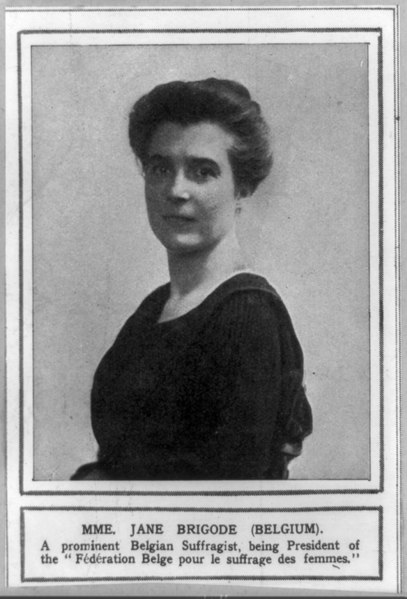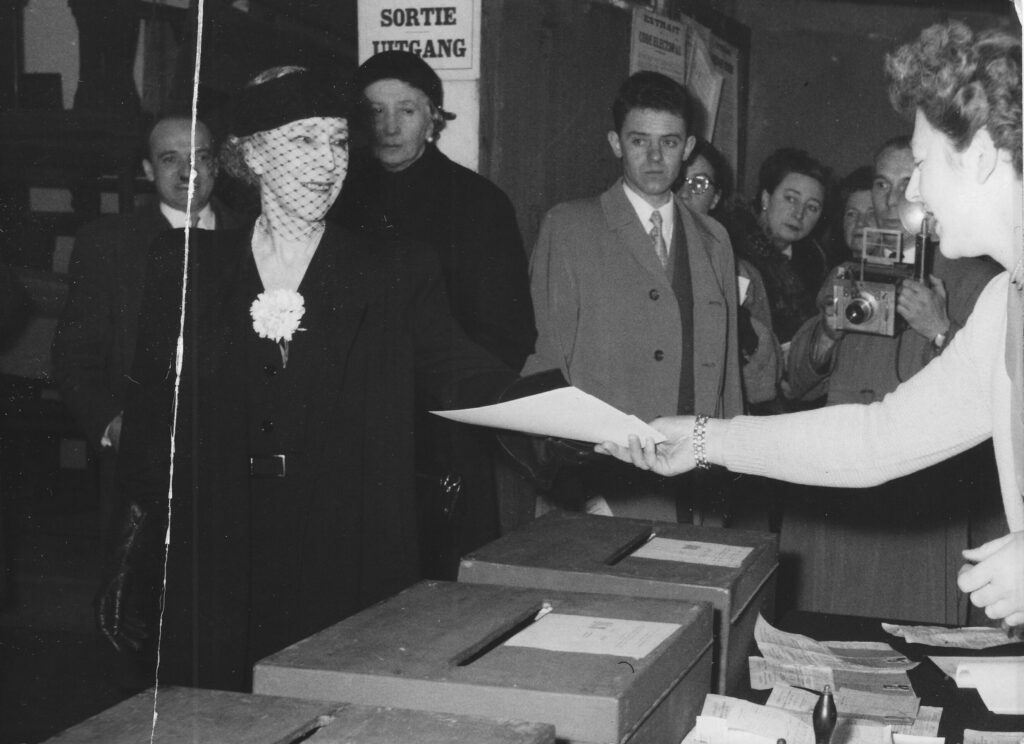On 26 June 1949, Belgian women exercised their right to vote for the first time during a legislative election. This marked a significant milestone in the country's march towards gender equality.
Prior to receiving the right to vote, the legal status of married women was akin to that of a minor. From 1830 onwards, however, people started demanding change to combat civil, political and professional inequalities.
Belgian educator and feminist Zoé de Gamond and her daughter Isabelle believed that education held the key to women's emancipation. Zoé created schools for young girls, advocating intellectual equality as the means to achieving overall gender parity. In 1865, Isabelle established the first commune school in Brussels offering full secondary education for girls.
The notorious 'Popelin case' in 1888 shed light on inequality when Marie Popelin – the first woman to pursue legal studies – was denied admission to the Bar due to her gender. This incident sparked the creation of the first women's rights league in 1892, led by Popelin, medic Isala Van Diest and lawyer Louis Frank, focusing initially on revising discriminatory laws.
On the eve of the First World War (27 July 1914), the Belgian Federation for Women's Suffrage emerged, lending political weight to women's demands. Despite their critical role during the war, women didn't see any significant progress in political rights after the armistice, even as other nations had granted women the right to vote prior to the conflict.

Prominent Suffragist Jane Brigode. Credit: Wikimedia Commons
New Zealand pioneered the way in 1893 with South Australia following suit the next year. In Europe, Finland led the way in 1906, followed by Norway in 1913, and then Iceland and Denmark in 1915. Britain joined the movement in 1918, followed by the Netherlands in 1919.
In the aftermath of the war in 1919, Belgian women achieved a first victory, earning the right to vote in local elections; however this was only extended to war widows and mothers of soldiers killed in combat. Around the same time, women incarcerated for political reasons during the German occupation also earned the right to vote.
No 'prostitutes and adulterous women'
The next year, 1920, a new law extended the right to vote and run for office in commune elections to all women, except "prostitutes and adulterous women". Simultaneously, women could run for national office from 1920 in the Chamber of Representatives and from 1921 in the Senate.
In the 1930s, during the economic crisis, women faced workplace discrimination, especially from Catholic-liberal governments attempting to reduce their wages or bar them from certain public sector posts. However, growing feminist opposition and women's organisations gradually uprooted these discriminatory measures, significantly due to the intervention of Prime Minister Paul Van Zeeland in 1935.
Following World War Two, political debates focused on economic and social issues and the return of King Léopold III. However, the idea of granting women the right to vote found broad cross-party support.
As soon as August 1945, two bills were proposed and on 27 March 1948 the long-awaited law was enacted, leading to women casting their votes in the 1949 legislative elections. The electorate swelled from 2.7 million in 1946 to over 5.6 million in 1949.
Women in positions of power
Although this marked a decisive step, achieving parity in positions of power remained a major challenge. In these first elections, only 3.3% of the Chamber's ministers were women.
The feminisation of Belgian politics has slowly but steadily progressed over the following decades. In 1965, Marguerite De Riemaecker-Legot became the first female minister. It wasn't until 1994 and the Smet-Tobback law, which enforced electoral list quotas, that the movement gathered pace.
Following the 2019 elections, women now represent 35.33% of the Chamber's ministers and 48.33% of senators. Additionally, the government formed in October 2020 was the first equal Federal Government, a far stretch from the mere 12% representation in 1995.
Related News
- Belgium unveils €2 coin to mark 75 years of universal suffrage for women
- Belgium is a 'defender of gender equality', but still a long way to go
The 2024 elections could mark another step forward, particularly in the South. For the first time since its inception in 1980, the future Walloon Parliament is expected to approach gender parity, with 37 women and 38 men elected. The Brussels parliament is also progressing with the next legislature likely to see 43 women for 46 men.
However, gender parity in the Chamber of Representatives currently remains static, particularly in light of the rise of the Vlaams Belang party (with 37.5% female elected representatives).

